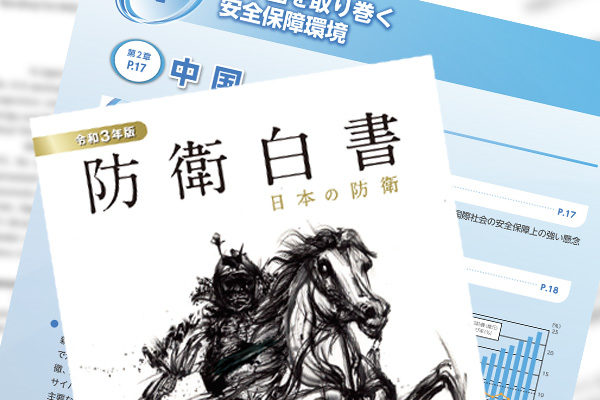On July 13, Japan’s Ministry of Defense released its annual white paper for 2021. “Chinese military trends have become a matter of grave concern to the region including Japan and the international community,” it says. But the white paper notes that North Korean military trends “pose grave and imminent threats to Japan’s security.” Why doesn’t it call China, as well as North Korea, as a threat?
Impeding common strategic planning with U.S.
A threat consists of capabilities and intentions to conduct military attacks. North Korea can clearly be identified as a threat to Japan as it is capable of carrying out ballistic missile attacks on Japan and has clarified its intention to reduce Japan into a “sea of fire.”
How about China? It has thousands of missiles that can reach Japan, against hundreds in North Korea. Therefore, China’s attack capabilities are roughly 10 times as strong as North Korea’s. However, Japanese government officials explain that China has no intention to attack Japan because Japanese and Chinese prime ministers at their talks in 2018 agreed that the two countries would move their relations from competition to cooperation and not become any threat to each other.
But this explanation is strange. Chinese government ships have intruded almost every day into territorial sea or contiguous zone around the Senkaku Islands that are Japan’s inherent territory. In anticipation of a Taiwan emergency, China has conducted missile attack exercises against mock military bases in western Chinese dessert that are modeled after and as large as the Kadena Air Force Base in Okinawa and the Yokosuka Naval Base in Kanagawa prefecture near Tokyo. China thus has a clear intention to seize Japan’s territory and conduct military attacks on Japan.
Even if the current Chinese leadership cannot be concluded as having intentions to attack Japan, any dictator can change intentions overnight in a totalitarian country like China.
In the Interim National Security Strategic Guidance under the Biden administration, the United States has identified China as “the only competitor potentially capable of combining its power to mount a sustained challenge to a stable and open international system,” handling China as a de facto threat. If there exists a perception gap over threats in an alliance, allies cannot officially develop common strategies and operation plans, affecting their joint military exercises premised on such strategies and plans.
Possible modifications by other ministries
Lieutenant colonels or commanders of the Ground, Maritime and Air Self-Defense Forces are assigned to draft the defense white paper. I have ever participated in drafting the annual paper as an active duty. For several months before approval by the Cabinet, a Ministry of Defense draft is subjected to coordination among government ministries and agencies.
Just after the release of the latest defense white paper, I exchanged opinions with retired generals and admirals including former chiefs of staff, all of whom agreed that China should have been treated as a “threat.” Based on the discussion, I suspect that a Ministry of Defense draft might have described China as a threat but the Ministry of Foreign Affairs that is reluctant to trouble bilateral relations might have requested modification to make China merely as a “concern.”
Meanwhile, the latest defense white paper includes a section titled “Addressing Environmental Issues,” that says the Ministry of Defense and SDF will also work on environmental issues. Based on the U.S. Biden administration’s emphasis on environmental issues, views of the Ministry of the Environment might have been put into the defense white paper during the inter-ministry coordination. I am concerned that some portion of defense budget could be allocated to environmental measures to reduce fighting powers.
Fumio Ota is a senior fellow and a Planning Committee member at the Japan Institute for National Fundamentals. He is a retired Vice Admiral of Japan’s Maritime Self-Defense Force.


